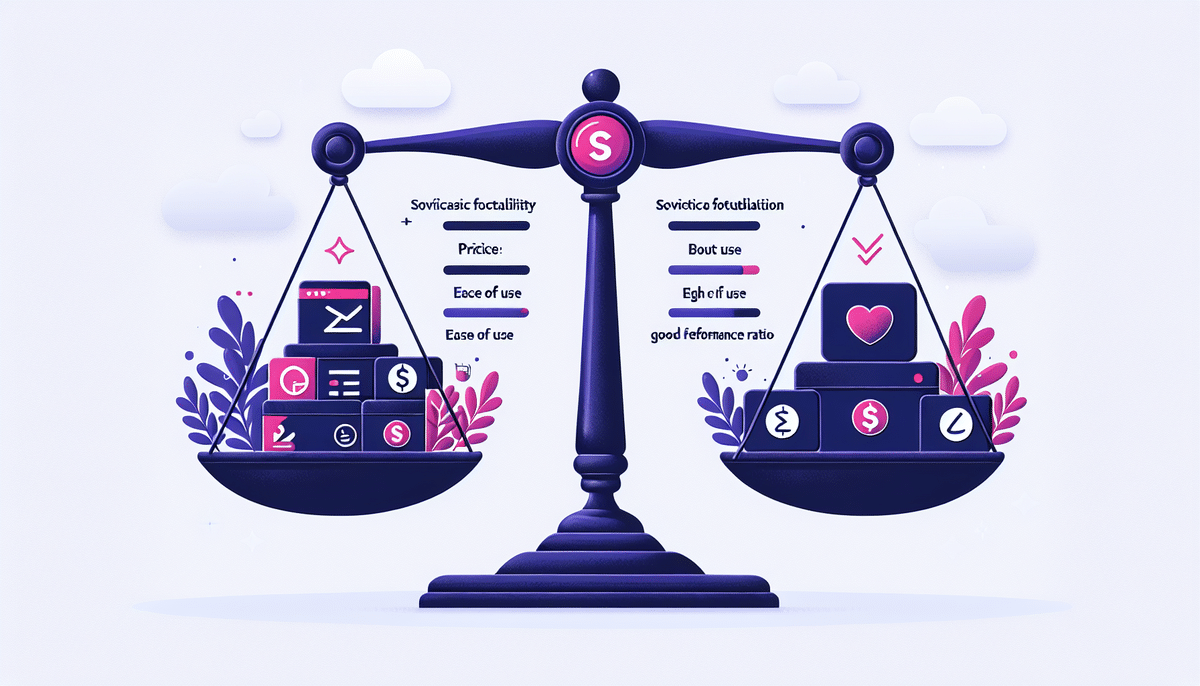Sendcloud vs ShipWorks: An In-Depth Comparison
In the world of ecommerce, efficient shipping management is crucial for business success. Selecting the right shipping management software can significantly impact your operations, customer satisfaction, and overall profitability. Sendcloud and ShipWorks are two popular choices in the market. This comprehensive comparison will help you decide which platform best suits your business needs.
Overview of Sendcloud
Sendcloud is a cloud-based shipping software designed for ecommerce businesses. It enables merchants to manage shipping, automate workflows, handle returns, and manage international shipping seamlessly. Sendcloud integrates with popular ecommerce platforms like Shopify, Magento, WooCommerce, and Amazon, among others.
Key Features
- Manage multiple carriers and shipping methods
- Automated workflows for shipping processes
- Branded tracking pages for enhanced customer experience
- International shipping capabilities with customs documentation
- Real-time tracking system for both merchants and customers
- Shipping insurance options to protect against loss or damage during transit
Pros and Cons
- Pros:
- Automates shipping workflows
- Manages international shipping efficiently
- Handles returns with ease
- User-friendly interface
- Excellent customer support
- Cons:
- Relatively expensive, which can be a drawback for small businesses
- May not integrate seamlessly with all ecommerce platforms, potentially requiring additional development work or third-party tools
Overview of ShipWorks
ShipWorks is a robust shipping software that assists online merchants in managing their shipping processes efficiently. The platform is designed to help businesses save time and reduce shipping costs by automating various aspects of the shipping workflow. ShipWorks integrates with popular ecommerce platforms like eBay, Etsy, and Amazon, as well as shopping carts and marketplaces.
Key Features
- Multiple platform integration for comprehensive order management
- Customizable shipping labels and packing slips
- Automated order processing
- Advanced reporting and analytics
- User-friendly interface
- Real-time tracking information for shipments
- Designed for small to medium-sized businesses
Pros and Cons
- Pros:
- Automates shipping processes
- Syncs with popular ecommerce platforms
- Straightforward interface
- Exceptional reporting features
- Integrates with multiple carriers for cost-effective shipping options
- Customizable packing slips and shipping labels
- Cons:
- Does not support international shipping, which could be a disadvantage for businesses that sell internationally
- Pricing structure can be expensive for small businesses with low shipping volumes
- Some users have reported issues with customer support
Pricing Comparison
Pricing is a critical factor when choosing shipping software. Sendcloud offers tiered pricing plans, with the basic plan starting at €40/month. In contrast, ShipWorks charges $25 per month per user, and their pricing is based on the number of users.
Sendcloud's pricing model is based on the number of shipments, which can be more cost-effective for businesses with higher shipping volumes. According to [PCMag](https://www.pcmag.com/picks/the-best-shipping-software), Sendcloud's scalability makes it a strong choice for growing businesses. Conversely, ShipWorks' per-user pricing can become expensive as your team grows. For businesses with a small team and moderate shipping needs, ShipWorks may offer a more affordable solution.
User Reviews
Both Sendcloud and ShipWorks have garnered positive feedback from users. Sendcloud users commend the platform's ease of use and automation capabilities, enhancing their shipping efficiency. According to [G2](https://www.g2.com/products/sendcloud/reviews), Sendcloud offers excellent customer support and seamless integrations.
ShipWorks is praised for its advanced reporting features and the ability to integrate seamlessly with various ecommerce platforms. However, some users have expressed concerns about ShipWorks' customer support responsiveness and the lack of international shipping options, as noted in [Capterra](https://www.capterra.com/p/149799/ShipWorks/reviews/).
Integrations and Automation
Sendcloud integrates with over 40 ecommerce platforms, including Amazon, Shopify, and WooCommerce. It also supports top shipping carriers like UPS, DHL, and FedEx. Additionally, Sendcloud offers integrations with various marketplaces such as Bol.com and Cdiscount, enhancing its versatility for international sellers.
ShipWorks integrates with several ecommerce platforms like eBay, Etsy, and Amazon, and supports shipping carriers including USPS, UPS, and FedEx. ShipWorks also offers integrations with accounting software like QuickBooks and Xero, providing a more comprehensive business management solution.
Both platforms offer robust automation features. Sendcloud allows users to automate shipping workflows, including label creation, picking lists, and tracking number synchronization. ShipWorks enables automated order processing, shipping label creation, and address validation to prevent shipping delays.
Customer Support Comparison
Both Sendcloud and ShipWorks are recognized for their customer support. Sendcloud provides multiple support channels, including email, phone, and live chat, along with an extensive knowledge base filled with tutorials and user guides. Notably, Sendcloud offers personalized onboarding and training sessions for new users, ensuring a smooth transition and effective use of the platform.
ShipWorks also offers email and phone support, along with a comprehensive knowledge base and a user forum. However, ShipWorks does not provide personalized onboarding, which might require new users to spend additional time learning the platform independently.
Best for Small Businesses
For small businesses, Sendcloud may be the more advantageous option due to its extensive international shipping features and scalable pricing plans. The user-friendly interface and seamless integration with major ecommerce platforms make it ideal for businesses looking to grow their shipping operations without incurring excessive costs.
ShipWorks is also a solid choice for small businesses, especially those that require advanced reporting features and custom shipping rules. However, the per-user pricing model may be less attractive for very small teams with limited shipping needs.
Best for Large Enterprises
Large enterprises require shipping software that can handle complex and high-volume shipping needs. Sendcloud is better equipped for global expansion with its robust international shipping support, multiple carrier integrations, and comprehensive automation features. Its scalable pricing model also accommodates growing businesses efficiently.
ShipWorks can also cater to large enterprises with its advanced reporting and integration capabilities. However, the lack of international shipping support may limit its suitability for businesses operating on a global scale.
Conclusion: Which One to Choose?
Choosing between Sendcloud and ShipWorks depends on your business's specific needs. If international shipping, scalability, and cost-effective pricing based on shipment volume are priorities, Sendcloud is the better choice. On the other hand, if your business requires advanced reporting, custom shipping rules, and seamless integration with accounting software, ShipWorks may be more suitable.
Ultimately, both platforms offer robust features to enhance your shipping operations. Assess your business's shipping volume, growth plans, and specific feature requirements to make an informed decision.






















